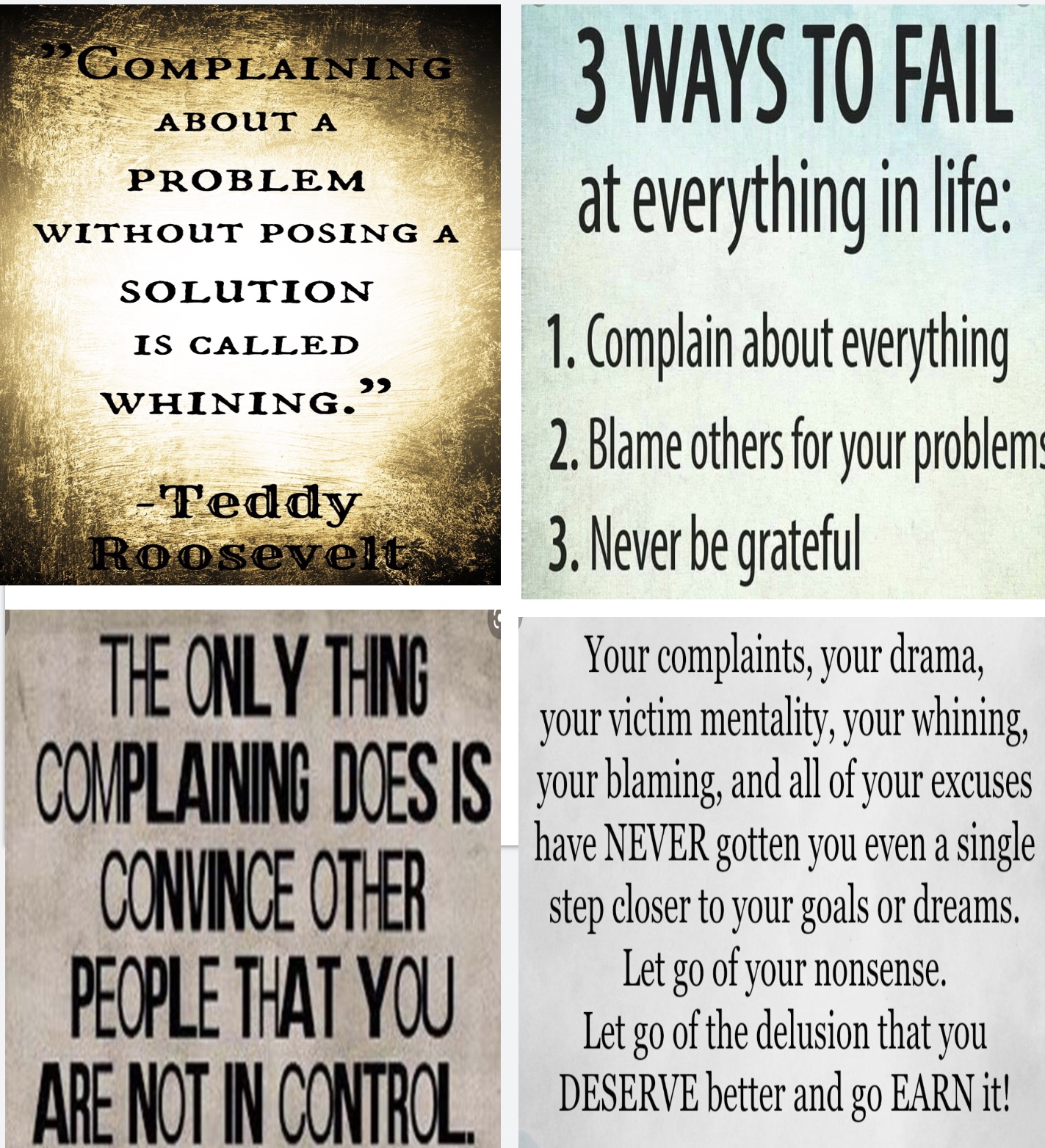
The PARABLE OF TALENTS, Mathew 25: 14-30, tells of a master who was leaving his house to travel, and, before leaving, he entrusted his property to his servants.

According to the abilities of each man, one servant received five talents, (think of one TALENT as being equal to 20 years of wages, so in other words, a considerable amount of money) the second servant received two talents, and the third servant received one talent. The property entrusted to the three servants was worth a significant amount of money.
Upon returning home, after a long absence, the master asks his three servants for an account of the talents he entrusted to them.
The first and the second servants explain that they each put their talents to work, and have doubled the value of the property with which they were entrusted; each servant was rewarded: “His master said to them, ‘WELL DONE, GOOD AND FAITHFUL SERVANT. YOU HAVE BEEN FAITHFUL OVER A LITTLE; I WILL SET YOU OVER MUCH. ENTER INTO THE JOY OF YOUR MASTER”.
The third servant, however, had merely hidden his talent, had buried it in the ground, and was punished by his master: Then the one who had received the one talent came and said, “SIR, I KNEW THAT YOU WERE A HARD MAN, HARVESTING WHERE YOU DID NOT SOW, AND GATHERING WHERE YOU DID NOT SCATTER SEED, SO I WAS AFRAID, AND I WENT AND HID YOUR TALENT IN THE GROUND. SEE, YOU HAVE WHAT IS YOURS.’
But his mastered answered, ‘EVIL AND LAZY SERVANT! SO YOU KNEW THAT I HARVEST WHERE I DIDN’T SOW AND GATHER WHERE I DIDN’T SCATTER? THEN YOU SHOULD HAVE DEPOSITED MY MONEY WITH THE BANKERS, AND ON MY RETURN I WOULD HAVE RECEIVED MY MONEY BACK WITH INTEREST! THEREFORE TAKE THE TALENT FROM HIM AND GIVE IT TO THE ONE WHO HAS TEN.
FOR THE ONE WHO HAS WILL BE GIVEN MORE, AND HE WILL HAVE MORE THAN ENOUGH. BUT THE ONE WHO DOES NOT HAVE, EVEN WHAT HE HAS WILL BE TAKEN FROM HIM”.
LESSONS APPLICABLE TO LEARNING HOW TO COMPETE
So many valuable lessons in this Biblical story about the character traits and standards that it takes.
- We all have WORK TO DO. There is work we MUST DO in order to grow, learn and develop. We must be diligent, competent, devoted and disciplined. Our journey is not simply being a part of a social club.
- We all start out with a different amount of TALENTS. We are all at different places in our journeys. This means we should NOT COMPARE OURSELVES TO OTHERS. We all have our OWN RACE TO RUN. Our main focus is what we do with the talent we have instead of being nosy about checking on what others are doing. Some are further along than others; some are more mature; some are still growing; some may just be starting out while others are well ahead of them.
- We must have GROWTH MINDSETS. We are expected to increase our given talents – some by over 100% or doubling what has been given you. Be willing to learn and acquire greater skills and knowledge. Be productive and COMPETENT in your training.
- Be trustworthy, responsible, reliable and diligent in small deeds so you can be entrusted in the BIG MOMENTS.
- STATUS QUO IS UNACCEPTABLE. We are expected to continually improve ourselves. Be eternal learners. You are responsible to GROW YOUR TALENTS. Doing nothing is unacceptable.
- STOP BLAMING OTHERS. “I knew you to be a hard man….so I was afraid”. AND DECIDED TO BURY MY TALENTS. Don’t blame others for the decisions YOU MAKE or the INACTIONS YOU TAKE. Blaming others is NEVER A GOOD IDEA.
- FEAR paralyzes our thoughts; prevents us from taking appropriate risks. Fear shows others you are not ready.
- When you don’t do your job or follow the high standards set by your teammates/peers, be expected to be called LAZY. Without passion, purpose and perseverance, you are considered to not giving your best effort to the task.
- If you do not value the opportunity being afforded you, it will be taken away and given to those you do show gratitude and exhibit competence.
- Our journey is difficult – full of challenges, adversity, struggles and failures. It is not easy; in fact, it is hard. The challenges put in front of you are difficult and sometimes even OVERWHELMING. Endure; persevere; keeping moving forward one step at a time. Honor your commitment by doing your very best no matter the difficulties or struggles.
We know that sports is JUST A GAME. It creates an “artificial environment with skills that you can or cannot do” – so it tests your athletic ability. In that artificial environment, statistics are kept, sportswriters write stories, sportscasters do interviews, individual awards are given to the best players, etc. This artificial environment CREATES EMOTIONS THAT ARE INCREDIBLY REAL AND REVEALING and the participants are forced to make decisions, take action and accept the consequences.
THE GAME IN SOME WAYS DEMONSTRATE WHO WE ARE & WHERE WE ARE.
In most moments, it exposes character and reveals who the participants are — and sometimes, we get a peek at who the parents and the administrators are too. In COMPETITIVE athletics, people’s talents and weaknesses are revealed for all to SEE.
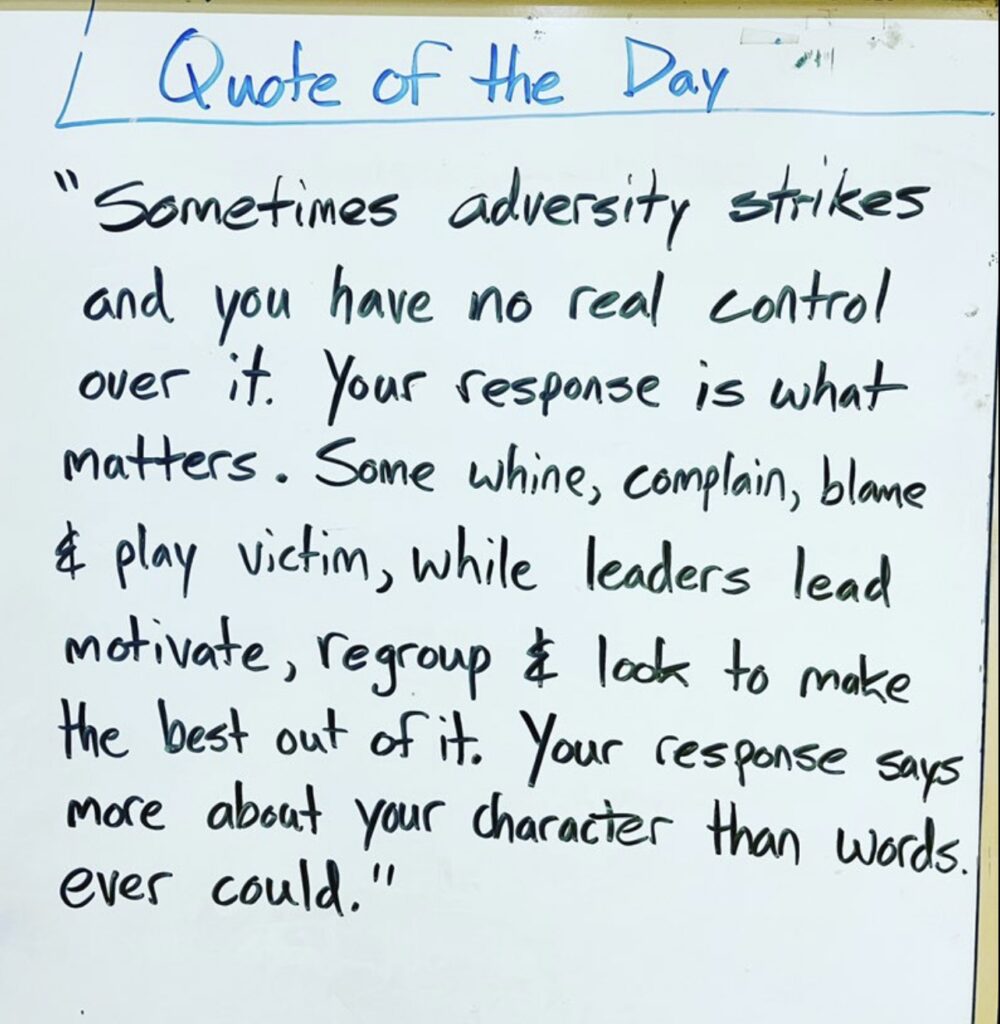
There is a BIG difference between COMPETING & PLAYING. There is big difference between recreational ball and competitive athletics.
Just like there is a big difference between using your TALENTS and burying them.
I have a lot of experience and background in DEVELOPING PLAYERS to be their VERY BEST – a lot of All Americans at EVERY POSITION & PERFORMING EVERY SKILL.
In recreational softball/baseball, the goal or purpose is to “make” the player FEEL GOOD about just showing up and playing. Making sure the player FEELS GOOD afterward matters.
So everything in a recreational environment is geared that way. Everybody gets to play a minimum of 2 innings, do not keep score, pool play, everybody gets a participation certificate or trophy, etc. In other words, the social connections are way more valued than the competitive experience.
BUT when COMPETING, it involves accepting the responsibility for your performance and the goal of winning. The COMPETITIVE athletic experience is about reaching goals, mastering a skill, growing and developing both as a person and a player everyday through competition which does involve failure & struggle & adversity.
I coached in “recreational leagues” but I NEVER COACHED WITH A RECREATIONAL MINDSET. I ALWAYS TAUGHT MY PLAYERS HOW TO COMPETE & TAKE RESPONSIBILITY for growing their talents.
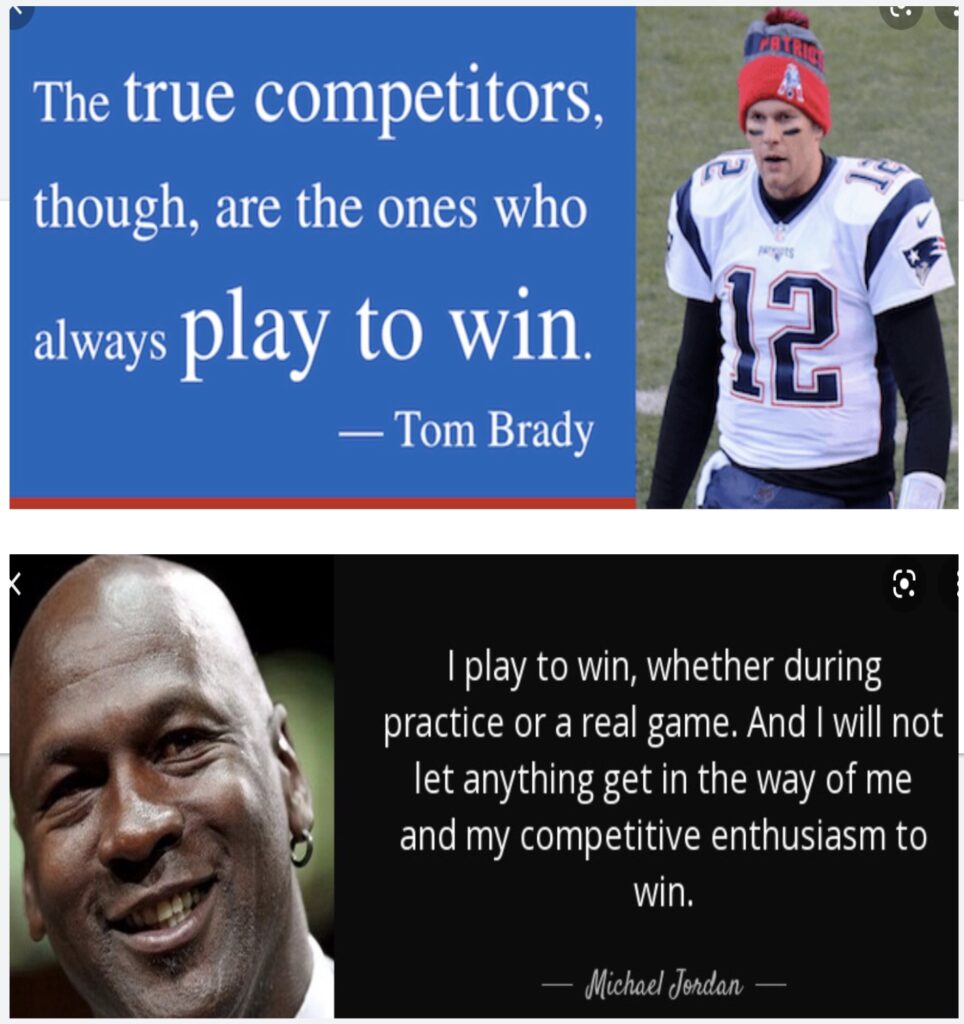
Development occurs by competing and finding a way to win – you are always being evaluated for your ability to compete and win. The competitive mindset involves “TOUGHNESS” and taking responsibility for your growth and development.
The competitor is able to assess their weak areas of their game and then go to work to improve them. Taking responsibility means that when you get beat, you show the strength to accept that your best was eclipsed by someone’s else’s best.
You have to make a decision to get better and part of your growth is a decision to evolve and grow and take responsibility for who you can become as a player.
It’s about making it happen. It’s about making quicker and better decisions. It’s about being stronger and more physical and more intense.
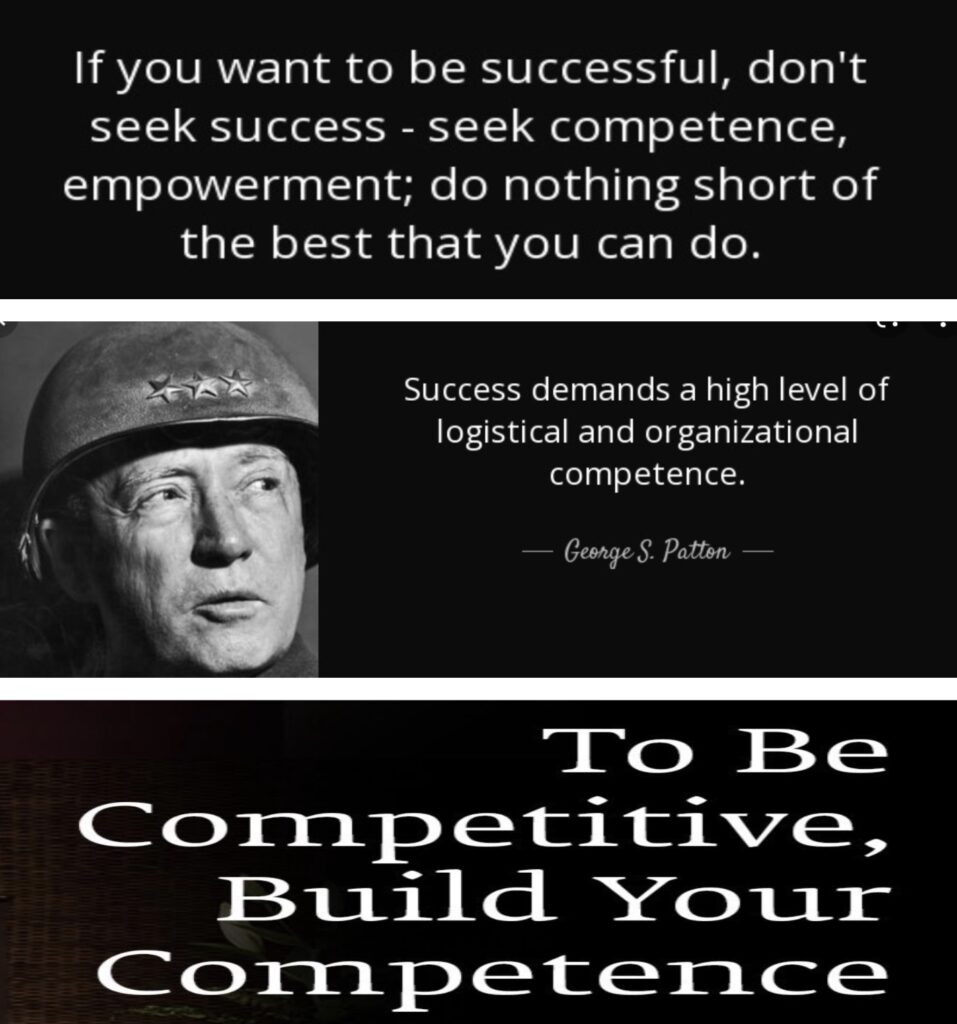
COMPETENCE AND COMPETING are non-negotiable qualities of every D1 athletic program. PERIOD.
The above listed 10 characteristics of what it takes to compete and be competent should apply across the board to every team, program, department and student-athlete.
- (1) We all have work to do;
- (2) we all have our races to run;
- (3) be productive and competent in your preparations with a growth mindset;
- (4) be reliable in small deeds to earn trust for the opportunity for the big moments;
- (5) status quo is unacceptable;
- (6) stop blaming others;
- (7) no fear, take appropriate risks;
- (8) be expected to be called lazy when you don’t commit your very best;
- (9) if you don’t value the opportunities afforded you, it will be taken away; &
- (10) endure the difficulties.
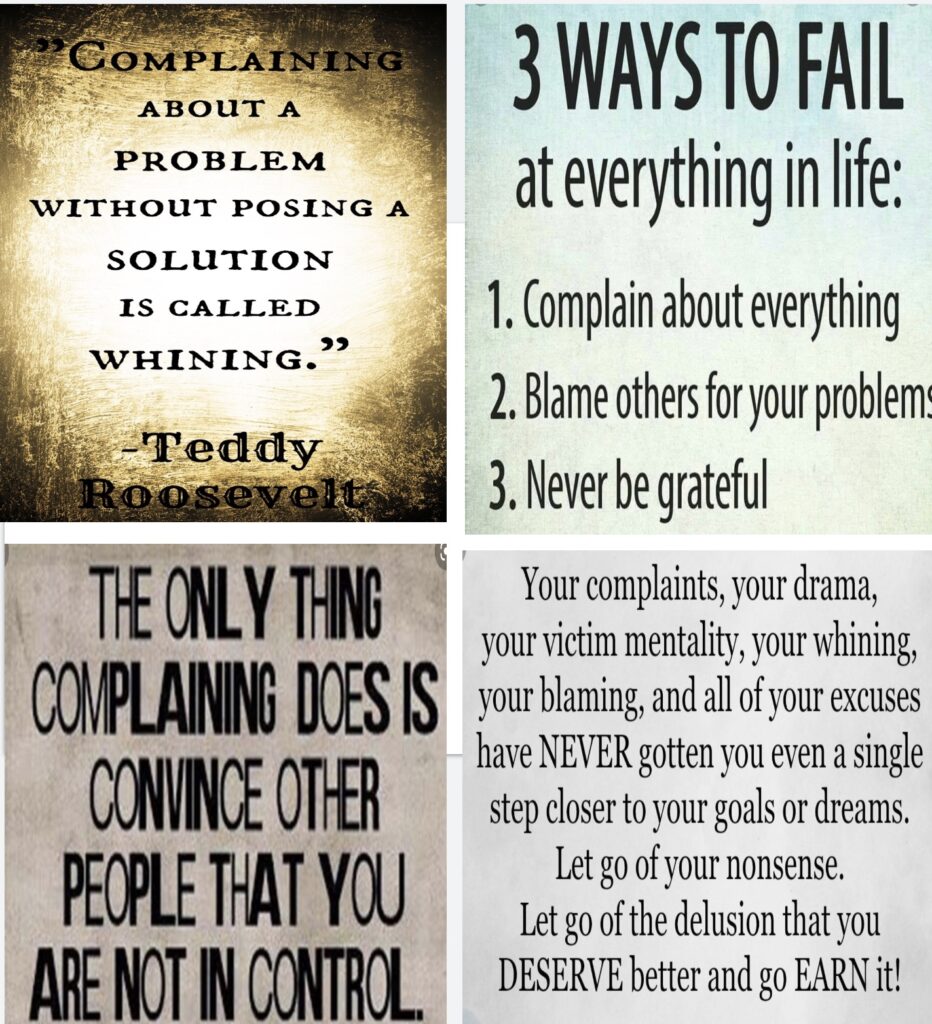
The WINNING MINDSET IS NOT A WHINING MINDSET; IT IS A COMPETITIVE & COMPETENT & GROWTH MINDSET. It is a mindset of HOPE & optimism and confidence but it is also a mindset of focus, hard work, relentlessness, selflessness, toughness, courage, and intensity.
The winning mindset is an internal decision that you will grind day after day after day; that you will be committed to do your very best all the time; it means you are relentless especially when things get tough and it means you will never give up.
And if you are so blessed to find one of those teams and one of those coaches that values the characteristics of competence and competitiveness and expects that during your time in that program that YOUR TALENTS WILL BE DOUBLED, be grateful for that special opportunity – YOU GOT WORK TO DO.
PURSUE EXCELLENCE & WIN THIS PITCH!
About the Author
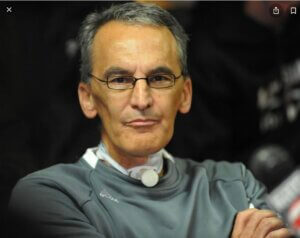
Mike Lotief coached 17 successful years as either the head softball coach or co-head softball coach with his wife Stefni Whitton Lotief at the University of Louisiana from 2002-2017 with an overall coaching record of 731-176 (80.6 winning percentage). Every season, the Ragin Cajuns softball team advanced to the NCAA tournament and also advanced to three (3) Women’s College World Series (2003, 2008, 2014) and from 2012-2016 advanced to five (5) straight NCAA Super Regionals. Coach Lotief produced over 40 All American selections and his 2017 team lead the nation in scoring and was ranked in the Top 10 in home runs, slugging percentage, on base percentage.
The coach is a cancer survivor (twice) and was the first person in the U.S. to receive the Pro Trach device. Mike and Stefni spearheaded and raised the funding to build the new softball stadium in 2009 and the new softball indoor hitting facility in 2015. They are proud parents to Chelsea, who played softball and graduated from the Univ. of Louisiana in 2018, and Andrew, who is a junior at Louisiana studying Mechanical Engineering.
Previous Articles in this Series
- The Mental Swing Attractors: Failure Cannot Break You (Nov. 11, 2021)
- Training Insights: “Swing Attractors” by Coach Mike Lotief… the Flaws of Pelvic Loading (Nov. 9, 2021)
- The Mental Swing Attractors: Push Yourself… You Don’t Have to Be #1 to BE #1! (Nov. 4, 2021)
- Training Insights: “Swing Attractors” by Coach Mike Lotief… Pelvis Loading, Part 2—The Planes of Movement (Nov. 2, 2021)
- The Mental Swing Attractors: Remove the Rope from Your Ankle & Get Rid of the Limiting Beliefs! (Oct. 28, 2021)
- Training Insights: “Swing Attractors” by Coach Mike Lotief… Pelvis Loading, Part 1—It’s All in the Hips (or Somewhere Deep Below) Oct. 26, 2021
- The Mental Swing Attractors: Champions are Developed by Devotion & Discipline! (Oct. 21, 2021)
- Training Expertise: “Swing Attractors”… the Secrets of Power Hitting by Coach Mike Lotief (Oct. 19, 2021)
More About Mike Lotief
- Why Michael Lotief is a Legendary Coach? by Jay Patel
- The Secret To Michael Lotief’s Success. By Jay Patel
- Michael Lotief Fights for Rajin’ Cajuns by Graham Hays ESPN
- Michael Lotief: Taking His Sport to New Heights by Neha Kapoor
- For the Love of the Game: A Look at Ragin’ Cajun Softball’s Power Couple
- How Louisiana-Lafayette’s Michael Lotief Develops Hitting Gems by Graham Hays ESPN
